Lichen Planus
At Cumberland Skin, your skin is our priority and we can help you manage lichen planus. If you are struggling with lichen planus, schedule an appointment with a trusted Cumberland Skin provider for a unique treatment plan catered to the needs of your skin.
Examples of Lichen Planus
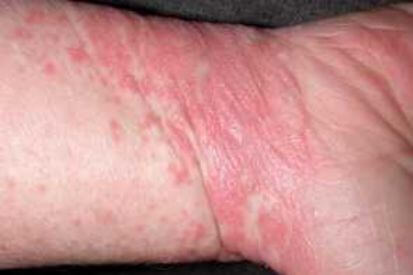
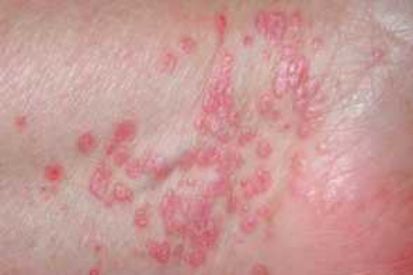
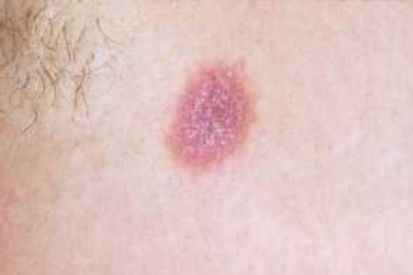
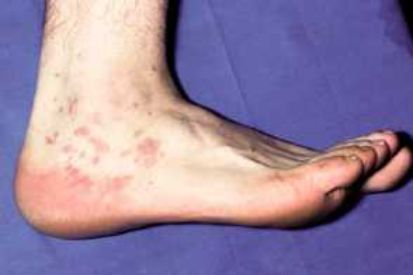
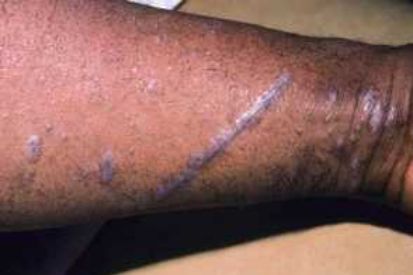
What are the Symptoms of Lichen Planus?
- Glossy, firm, reddish-purple bumps with delicate white lines.
- The quantity of these distinctive eruptions can vary from a few to numerous, commonly appearing on areas like wrists, lower back, and ankles.
Causes of Lichen Planus
- Lichen planus is an inflammatory skin condition with no precisely identified cause.
- Lichen planus is thought to be triggered by an abnormal immune response.
- Certain viral infections, such as hepatitis C, have been associated with lichen planus.
- Allergic reaction and exposure to certain chemicals may trigger lichen planus.
How to Prevent Lichen Planus
Preventing Lichen planus can be challenging as its exact cause is not fully understood. However, certain measures may help reduce the risk of flare-ups or alleviate symptoms:
-
Avoid Triggers: Identify and avoid potential triggers such as certain medications, allergens, or chemicals that may be associated with the onset of lichen planus.
-
Practice Stress Management: Since stress can contribute to flare-ups, adopting stress-reduction techniques such as meditation, yoga, or deep breathing exercises may be beneficial.
-
Maintain Good Oral Hygiene: If lichen planus affects the mucous membranes inside the mouth, practicing good oral hygiene and regular dental check-ups can help manage symptoms.
It's important to note that while these measures may be helpful for some individuals, there is no guaranteed way to prevent lichen planus entirely.
Frequently Asked Questions: Lichen Planus
Lichen planus is not contagious, and the skin lesions generally do not spread from person to person. However, they may spread on the individual's skin over time. Dermatologists can provide guidance on managing and preventing the spread of lesions.
The exact cause of lichen planus is not always clear, but it may involve an immune system response. It can be triggered by certain medications, infections, or other factors.
Stress may exacerbate lichen planus symptoms, but it's not a direct cause.
Lichen planus is a chronic condition, and while there is no cure, various treatments can help manage symptoms. Dermatologists may prescribe topical or oral medications, phototherapy, or other interventions depending on the severity and location of the lesions.
From our QualDerm Family of Brands: Skin Biopsies Explained
How to Treat Lichen Planus
Dermatologists typically diagnose lichen planus through a thorough examination of the skin, nails, and mouth. While visual inspection is often sufficient, in some cases, a skin biopsy may be necessary to examine tissue under a microscope for confirmation. Once diagnosed, various treatment options may be recommended, including:
-
Antihistamines: These can be prescribed to alleviate itching and discomfort associated with lichen planus.
-
Topical Corticosteroids: Creams or ointments containing corticosteroids are commonly used to reduce inflammation and manage skin lesions. They are applied directly to the affected areas.
-
Corticosteroid Pills: In more severe or widespread cases, oral corticosteroids may be prescribed to control inflammation and immune system response.
-
PUVA Therapy (Light Therapy): This involves exposure to ultraviolet A (UVA) light after taking a light-sensitizing medication (psoralen). It can be effective in managing lichen planus symptoms.
-
Retinoic Acid: Topical or oral retinoids, such as retinoic acid, may be recommended to promote skin cell turnover and reduce inflammation.
-
Tacrolimus Ointment or Pimecrolimus Cream: These are calcineurin inhibitors that can be applied topically. They are an alternative to corticosteroids, particularly in sensitive areas.
It's important to note that treatment plans may vary based on the type and severity of lichen planus, as well as individual patient factors. Schedule an appointment with one of our skin experts to determine your treatment plan for Lichen Planus.
Related Blog Posts

- Skin Cancer
- General Dermatology
- Chronic Skin Conditions
Learn more about the most common types of skin lesions we see at Cumberland Skin and how our dermatologists remove them.
Read More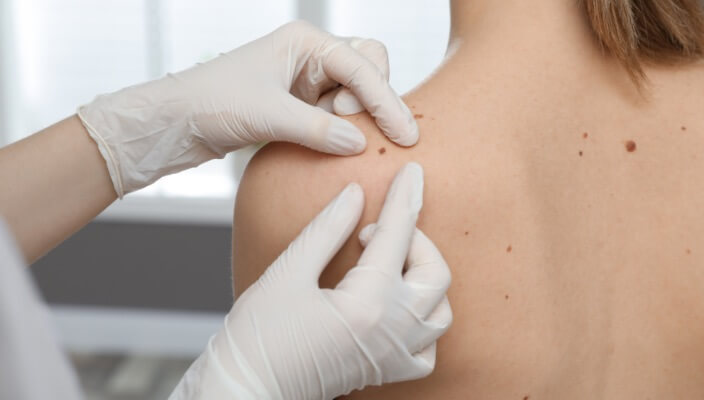
- General Dermatology
- Skin Exams
Preparing for your first dermatology appointment is important because it ensures everything goes as smoothly as possible and that your doctor is up-to-date on the status of your overall health and wellbeing. Here are our expert tips.
Read More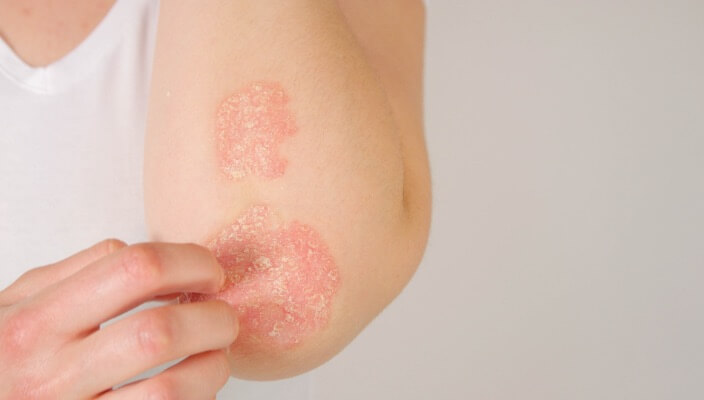
- General Dermatology
- Chronic Skin Conditions
Learn the differences between dry skin, eczema, and psoriasis, their distinct characteristics, and potential triggers. Gain valuable insights into identifying symptoms and seeking appropriate treatment to effectively managing these common skin conditions.
Read MoreFeatured Products

Pinnacle Skin Care Fortified Skin Nurturing Cream
For the dry skin patient who requires a heavier but elegant moisturizer. Contains vitamins A, C, and E, Co-Q10 and green tea in an aloe base. 1.6 fl oz / 47 g

ZO® Hydrating Crème
Temporarily relieves symptoms of severely dry skin while calming skin to soothe visible irritation and replenishing skin's natural moisture to aid in skin recovery. Net Wt. 113 g / 4 Oz.


